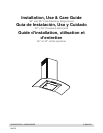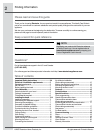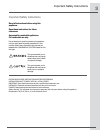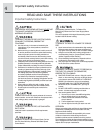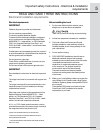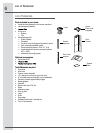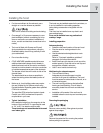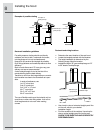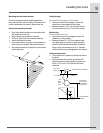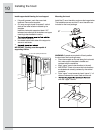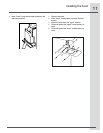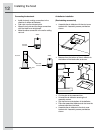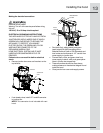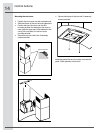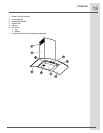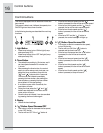
8
Installing the hood
Examples of possible ducting
Ductwork installation guidelines
For safety reasons, ducting should vent directly
outdoors (not into an attic, underneath the house,
into the garage or into any enclosed space).
Keep duct runs as short and straight as possible.
Duct ttings (elbows and transitions) reduce air ow
efciency.
Back to back elbows and “S“ turns give very poor
delivery and are not recommended.
A short straight length of duct at the inlet of the
remote blower gives the best delivery.
Transition to duct from the integral blower or remote
duct transition as close to the downdraft as is pos-
sible.
In order of preference, use
1st. 10” round duct
2nd. 8” round duct
3rd. 3-1/4” x 14” duct
4th. 7” round duct
5th. 3-1/4” x l0” duct
6th. 6” round duct
The use of exible metal round duct should only be
used when no other duct tting exists. Limit use to
short lengths and do not crush when making
corners
Ductwork and wiring locations
Determine the exact location of the vent hood.
Locate the template packed with the literature.
The height installation is determined by the
following image. Mark the location.
Installation height: 30” gas cooktop/range or 24”
to 30” electric cooktop/range.
Use a level to draw a horizontal straight pencil line
on the wall, which is your desired
installation height.
Find the centerline of the cooktop. Use a level to
draw a vertical straight pencil line on the wall.
CHECK TO BE SURE THE LINE IS PERFECTLY
PERPERNDICULAR.
•
•
•
•
•
•
Roof pitch w/
ashing and cap
Pipe
Transition
Sidewalk cap w/
gravity damper
Pipe
Transition
Pipe
Transition
Deector
Vertical discharge Recirculating
Sidewalk cap w/
gravity damper
Installation height



